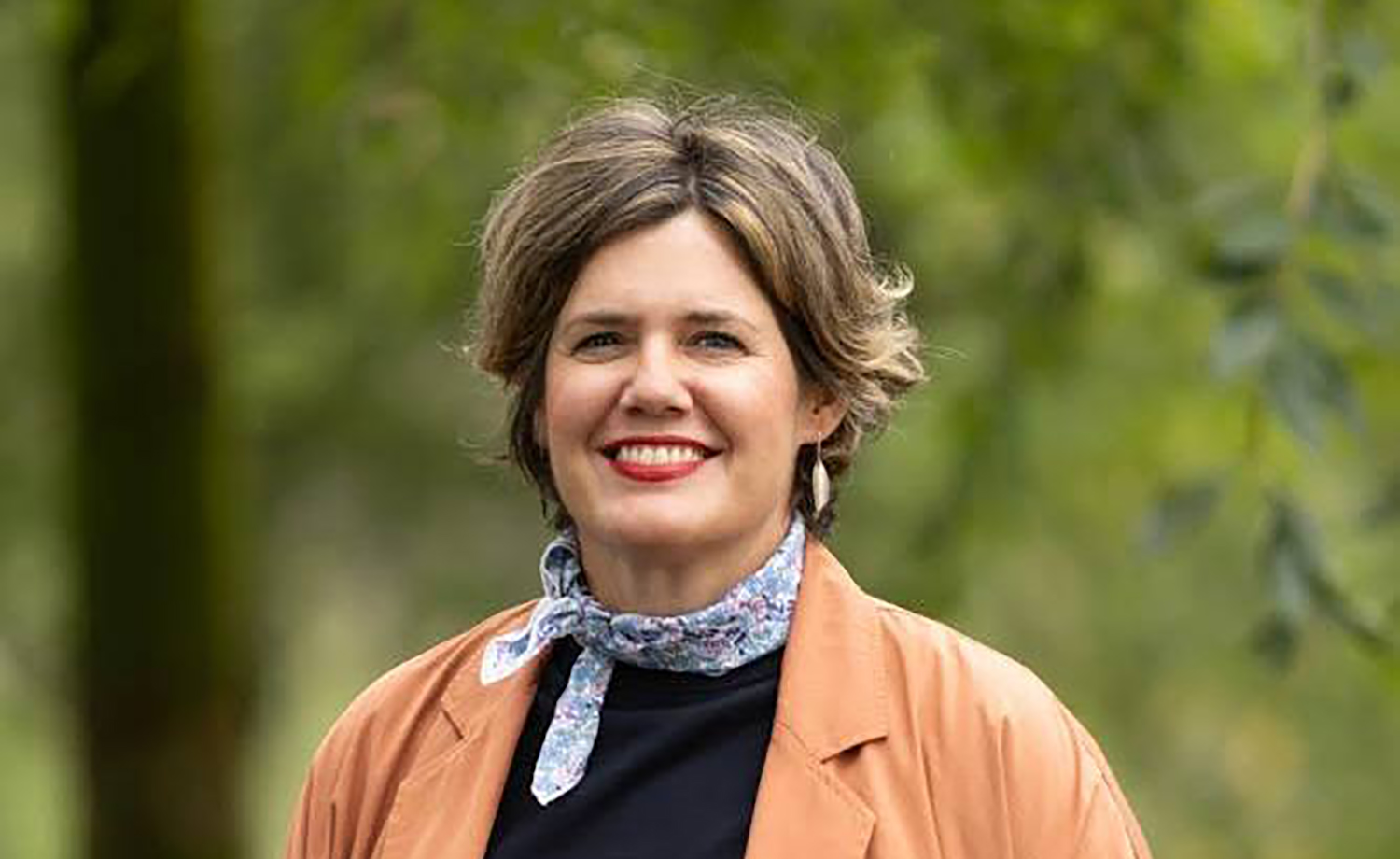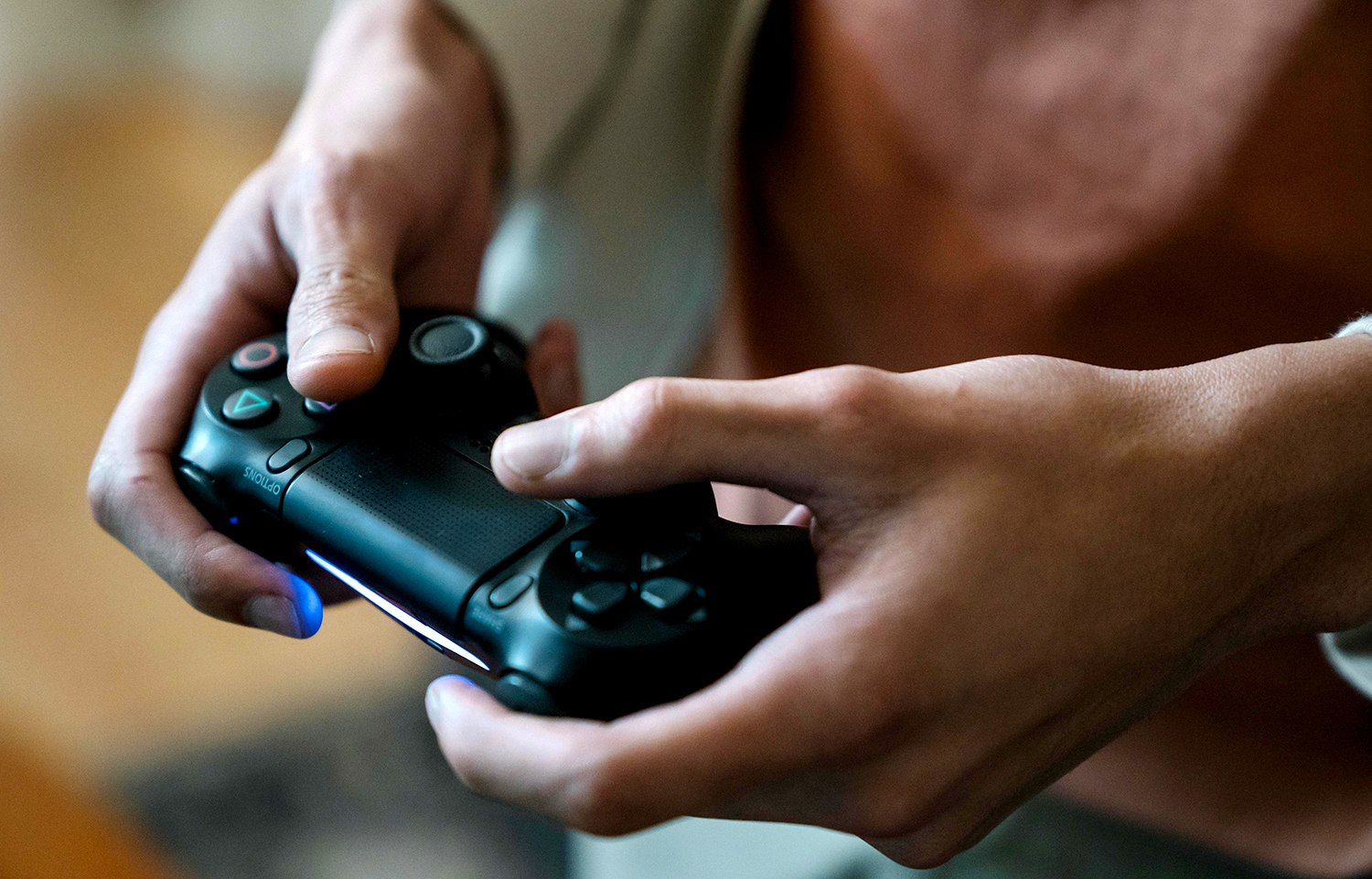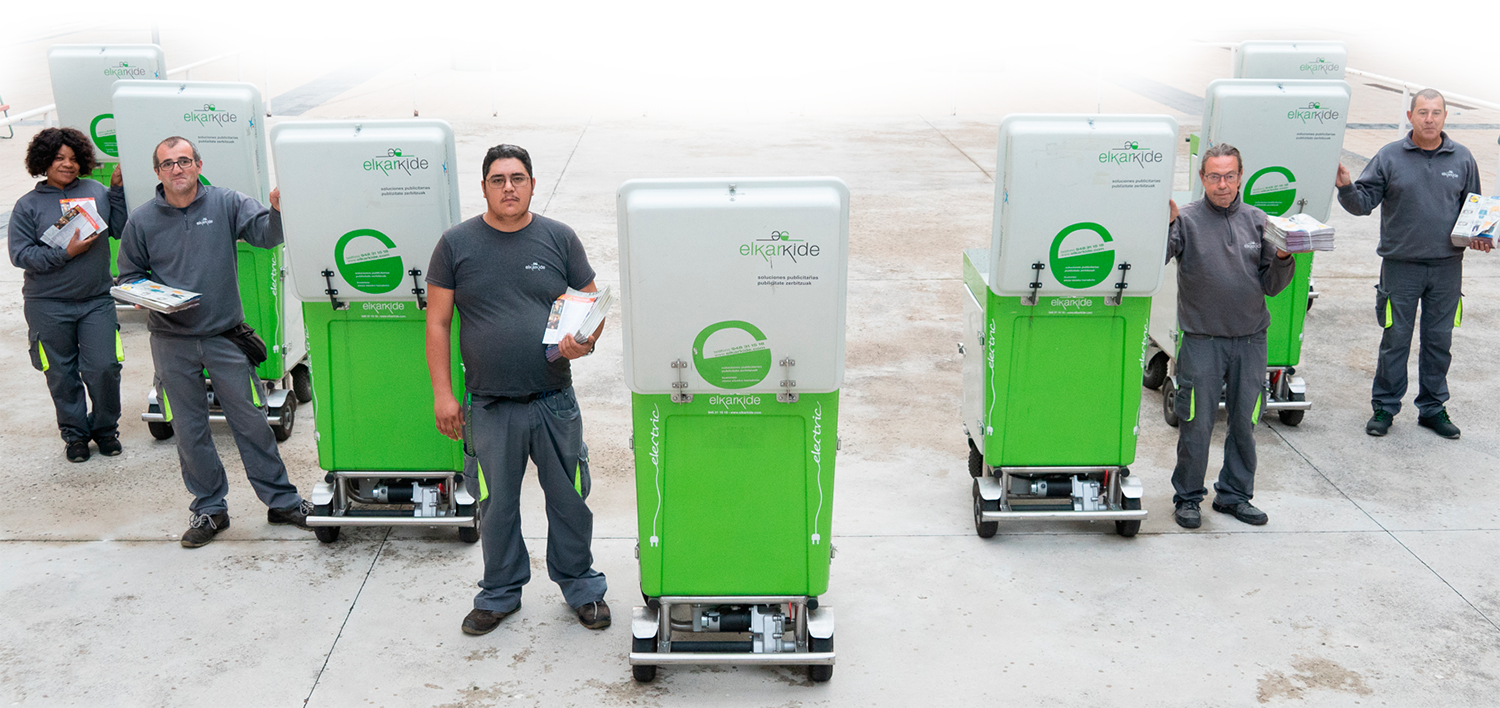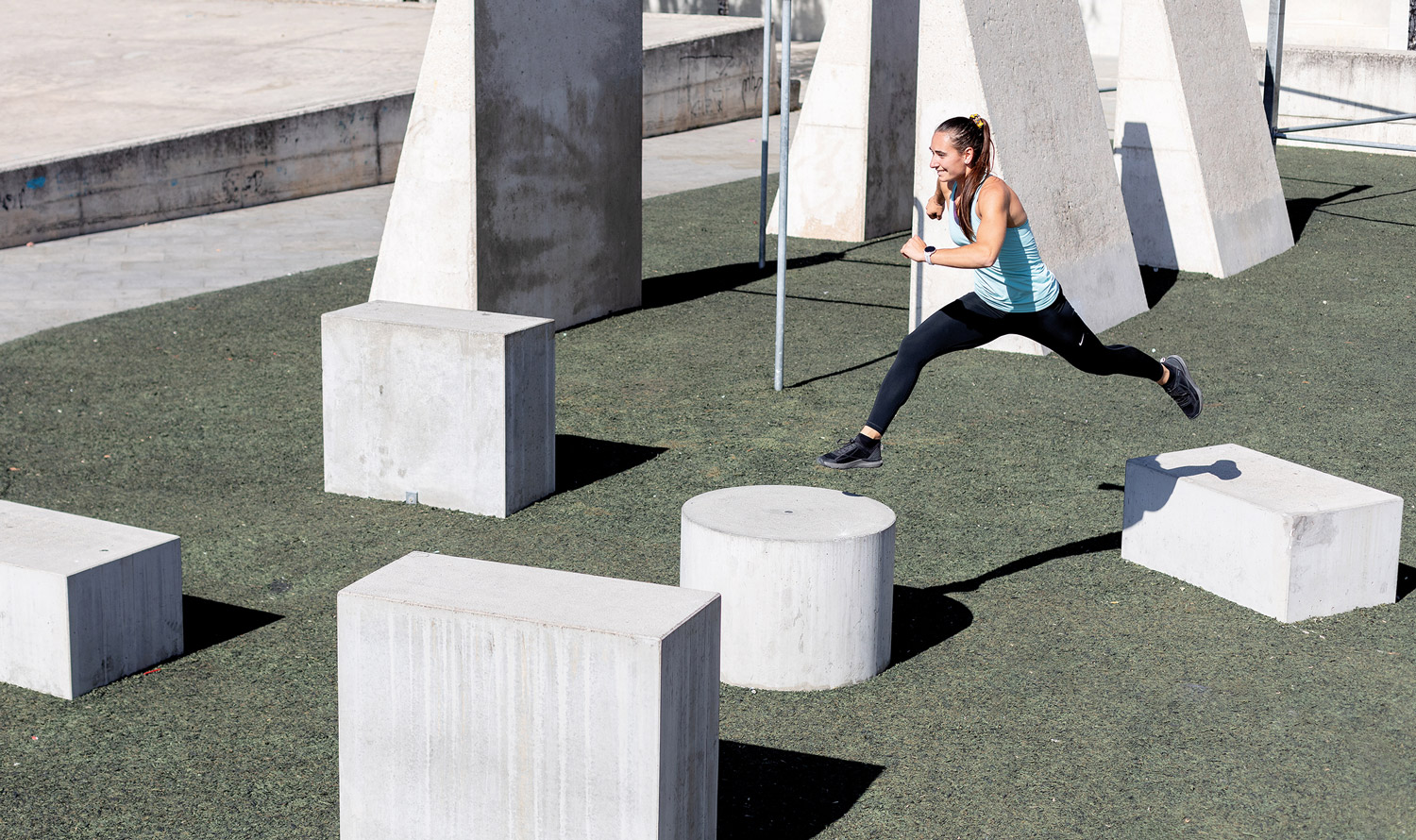"We always put the oxygen mask on others and if there's time, on everyone."
- The book 7,300 milligrams eszitalopram by journalist Iratxe Etxebarria gathers the reflections written in the crisis situation and the tools that have helped him.

Journalist Iratxe Etxebarria (Dima, Bizkaia, 1979) was forced to accept a work permit in 2022 after suffering an occupational stress illness. At that time, he held positions of responsibility in the direction of EiTB. Today, it offers emotional coaching or training to people suffering from burn out syndrome. In his book 7,300 milligrams in escitalopram, he has shared the process lived and the things that have helped him.
How are you?
I'm fine. I'm cured because mental illness is also cured like other diseases. Therefore, he was healed and very pleased with the impact of the book and, above all, with the good reception of the media and of society in general.
When and how did you get to know and experience the burn out syndrome?
From the beginning I was clear that I got sick from the level of work stress. When I was in the disease, an occupational health specialist explained to me what was happening to me. He told me that it usually happens to the professionals who have passionate trades. After that, I started reading and I got in touch with professionals from Belgium because the surveillance of burn out is highly developed.
Why do you think it affects people who have passionate trades more?
I haven't thought that much about it, but maybe it's because when you like a job the same way, you're doing an immeasurable delivery. I have lived it all passionately, but from a certain point it is a disease or it can be. In this life, everything has to be a measure. Often passion can be a two-sided coin: ‘I like it so much, I do it so comfortable…’. And what?
What's the limit? What caused his alarm?
As soon as I called the doctor I felt things, but I thought it was normal because I was in a position of responsibility. I thought some jobs had that stress as something inherent. The starting point was to take the holidays, slow down, and when my head wasn't able to slow down. I had nothing to fix, but in my head at the time, worries and fears began to emerge that didn't make sense. I spent 15 days on vacation and I couldn't come back. I felt bad in my head and heart, so I called the doctor and asked him to help me. The doctor told me I had to sleep and rest and gave me the sick letter.
It underlines that anyone cannot do the process that you have done.
I'm a very lucky person, because I've had the privilege, the right and the opportunity to get my sick certificate. I've had very good conditions around me during my illness. I've also had economic conditions to do psychotherapy and to have therapeutic support. I want to stress, because I think there are many of us who have had mental illness at some point in life, but there are not many who have the opportunity to follow the process or the treatment that I have done.
He's done therapy. Did you try it out the street?
I told the doctor that I needed the help of a professional, but he told me that I would have to look for it on my own, because I was not in a serious situation and because in Osakidetza there are very few professionals and the waiting list is long. What is being in extreme gravity? Try to commit suicide. I never tried to commit suicide, but for me at the time my mind was in a critical situation. You seem to have to get to the end so someone sees you urgently on the public network. If I hit the mountain they will take care of me in the hospital, but if I notice that I have something in my head, there is no service. That means a lot.
"You seem to have to get to the end so someone sees you urgently on the public network."
You mention three axes that have helped you in the process: reading, walking and writing. How did it come to them?
Music, too, always goes with music. Everything has been natural. At first I read a lot, because it was the only way to focus on a site. In my case it is not easy to say what I feel. So I began to write to speak to myself, to understand myself and to look at myself face to face. I wrote every morning. Then I started walking a lot because physical exercise gave me natural strength. I was walking with music: when I was lower I was quieter and when I was stronger I was rock-and-roll or something harder. I still do.
Hence the idea or need to give book form to reflections?
I made a trip to Jerusalem and took the books to read them and the notebook. I left alone and wrote a lot. I thought maybe I could have the form of a book. However, at first I wrote therapeutically. I thought I could explain what I've learned about neuroscience. If I had read my own book, I would not have reached the border that I arrived. In addition, as a journalist or communicator, I had to explain it. In the end, this was the formula that served me.
How did you address the return of work?
Very slowly. Social Security discharged me when I was eighteen months old, but since I didn't see myself able to come back, I asked for my leave. Then, I've decided to be an emotional coach, because I want to teach other people the formula that has helped me. It is a job that I manage, I measure what I can do and to what extent. I live differently and I manage my time and effort differently.
Has the process also helped you learn how to set limits?
Yes. Many times I still stumble and return to previous dynamics, but I've learned a lot. The learning process has been very intense and hard. I knew I was going to come out through that hole. That doesn't mean I woke up every day with strength and energy to get out of the tunnel. Sometimes I couldn't and felt immobile. But when I felt stronger, I saw the light. I felt so arrogant, because I had people holding me up.
"I knew I was going to get out of that hole. That doesn't mean I woke up every day with strength and energy to get out of the tunnel."
What else have you learned?
That work has to be a place in our lives. We are all born and die, and in the meantime our only task is to live. To do this, you have to take care of yourself. That is, to give rest to the body, peace to the head and joy to the heart. Many times in the planes they say that if something happens first we put on the oxygen mask, but in the day-to-day we don't work that way. We always put the oxygen mask on others and if there's time, on oneself.
That was said to me by the former student, who took a long time to file a complaint that was in court months and who, on the recommendation of the psychologist, had withdrawn the complaint of rape. And I kept quiet, unable to guess what to tell the young man that he still had... [+]
It is a subject that has recently been on everyone’s lips and which raises concerns and responsibilities. In life, many individual, social, and structural traits can be combined to protect or weaken our mental health. We've all experienced it once. It is a complex process in... [+]
We're not fine. Just look at friends and family to realize it. Cases of stress, anxiety and depression have increased in recent years and mental health departments are saturated with patients. As if it were not enough, research has shown that for the first time we will live worse... [+]



















